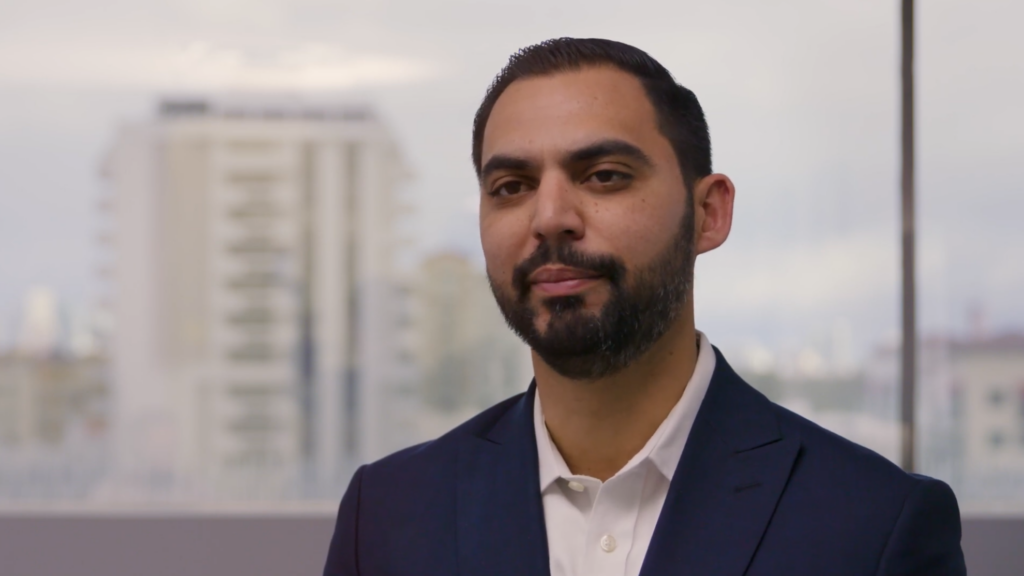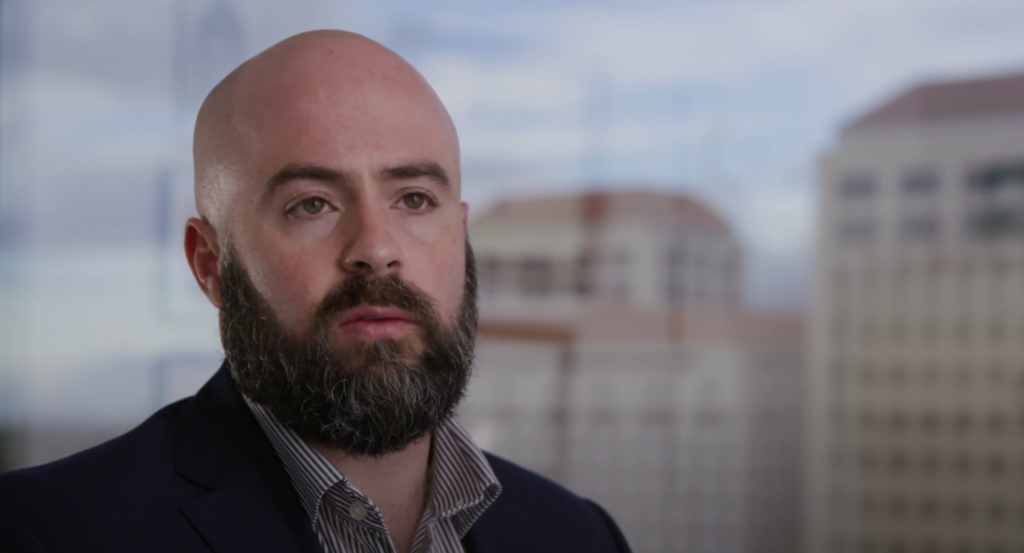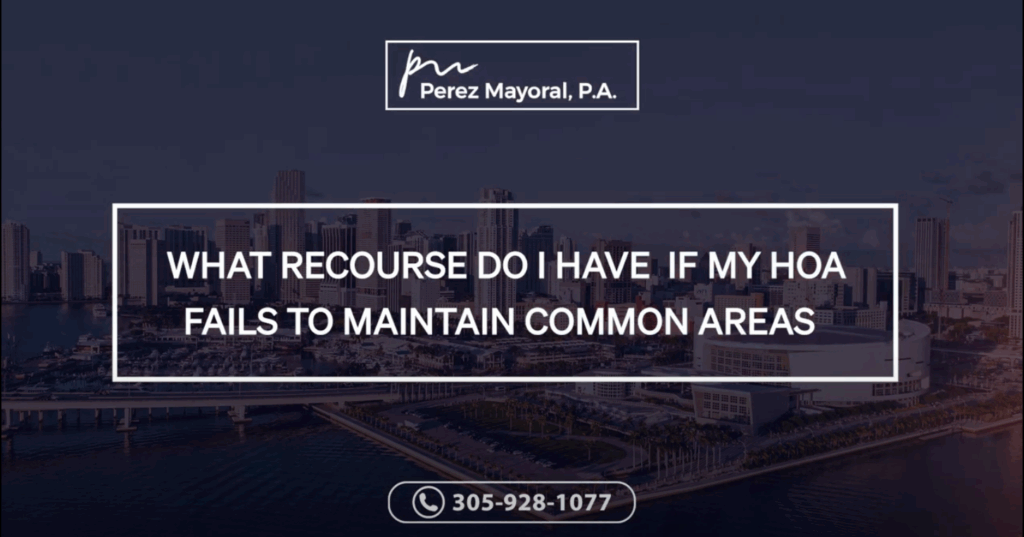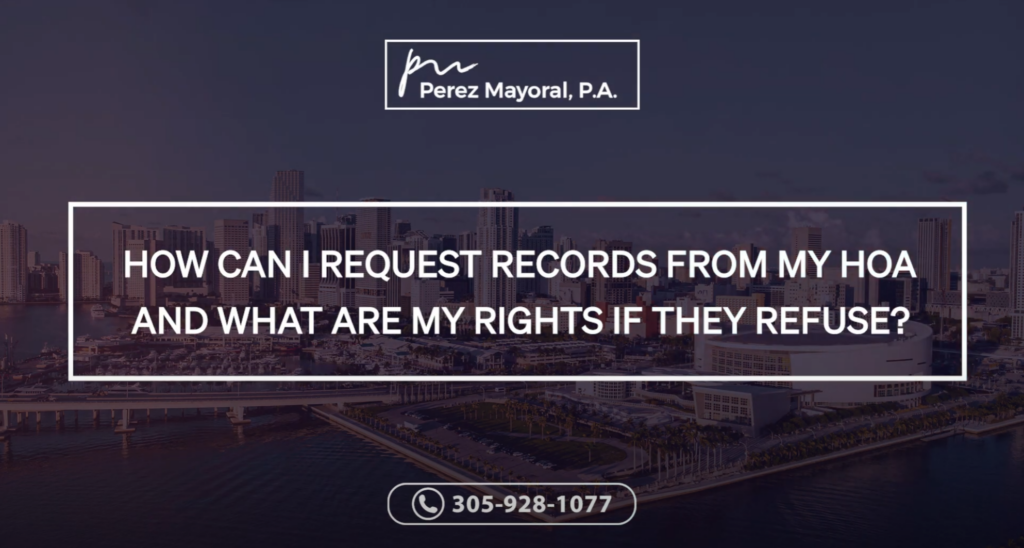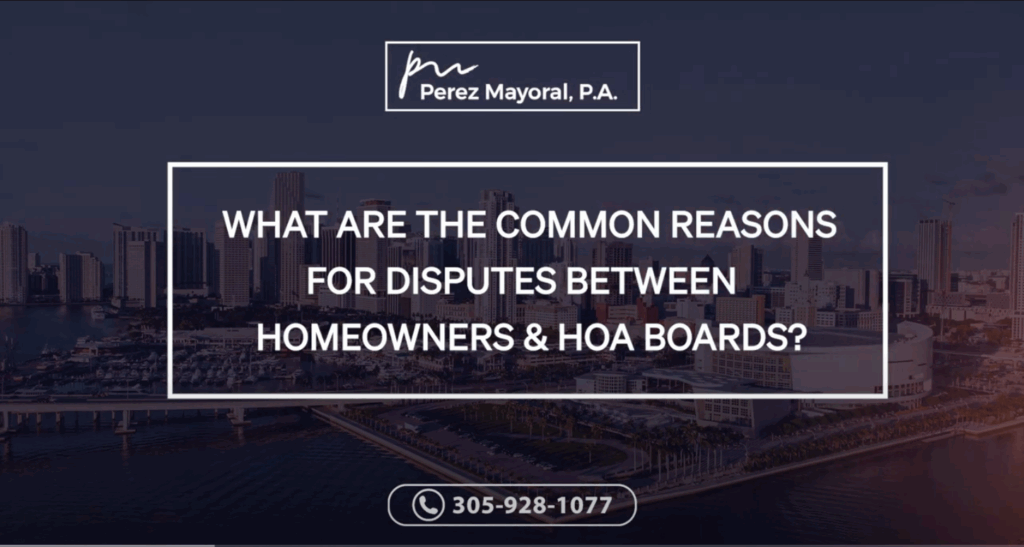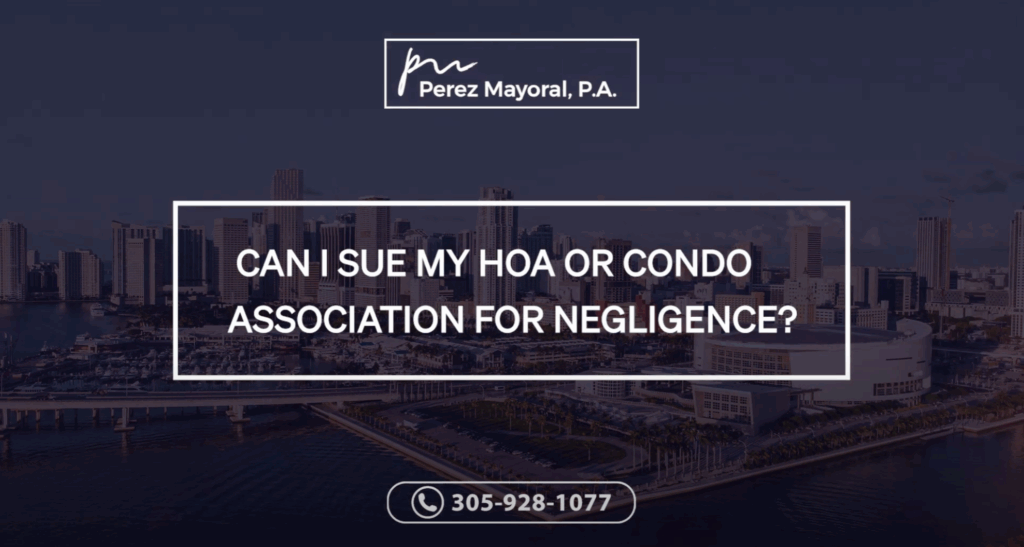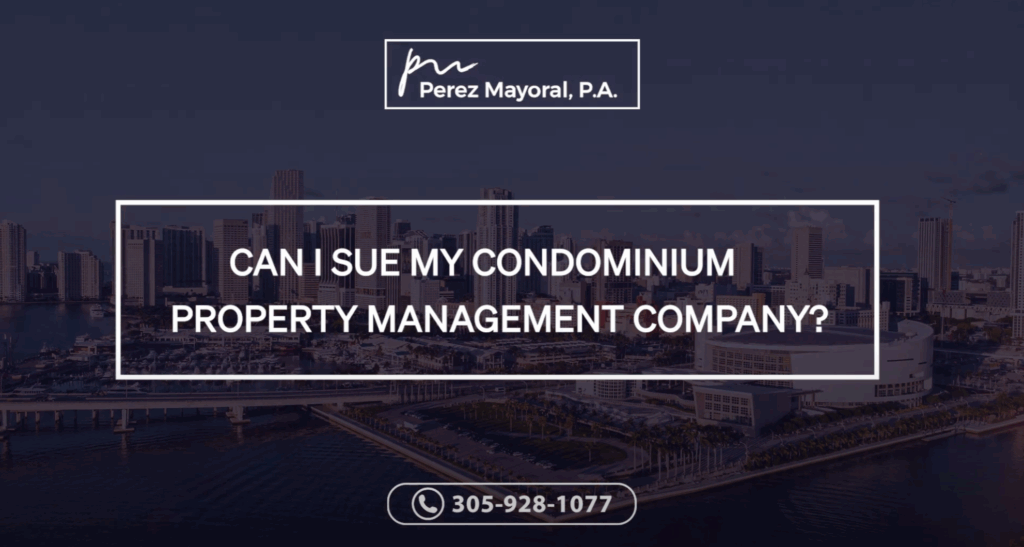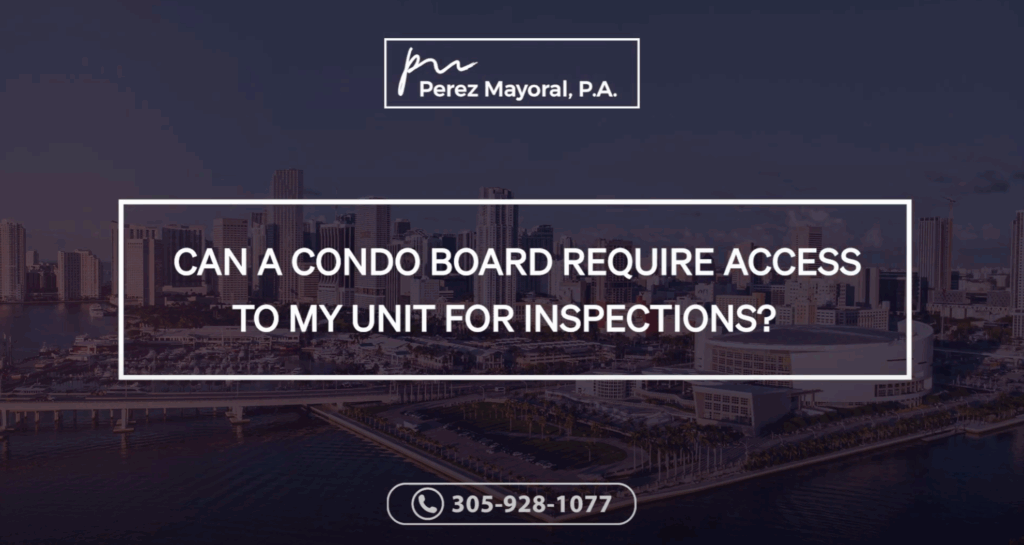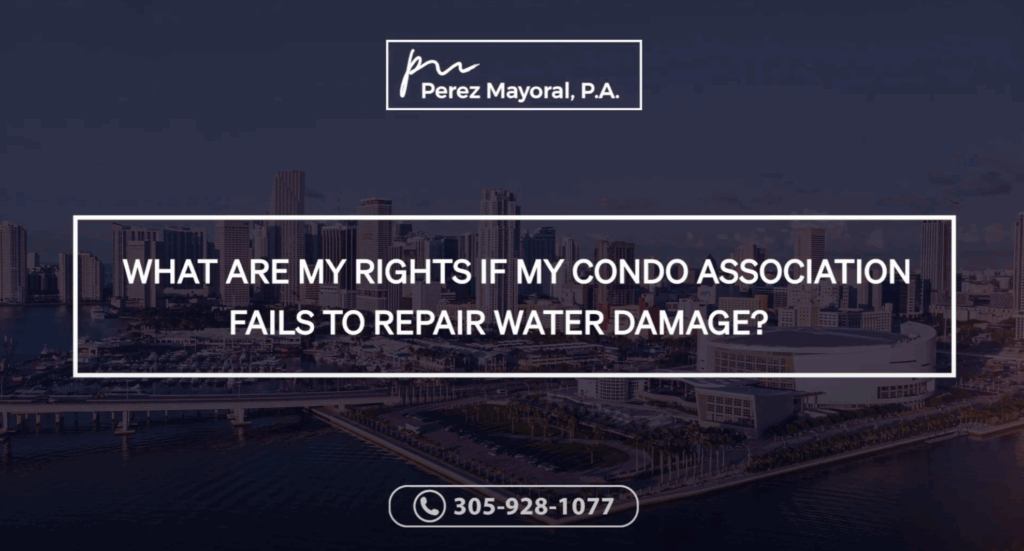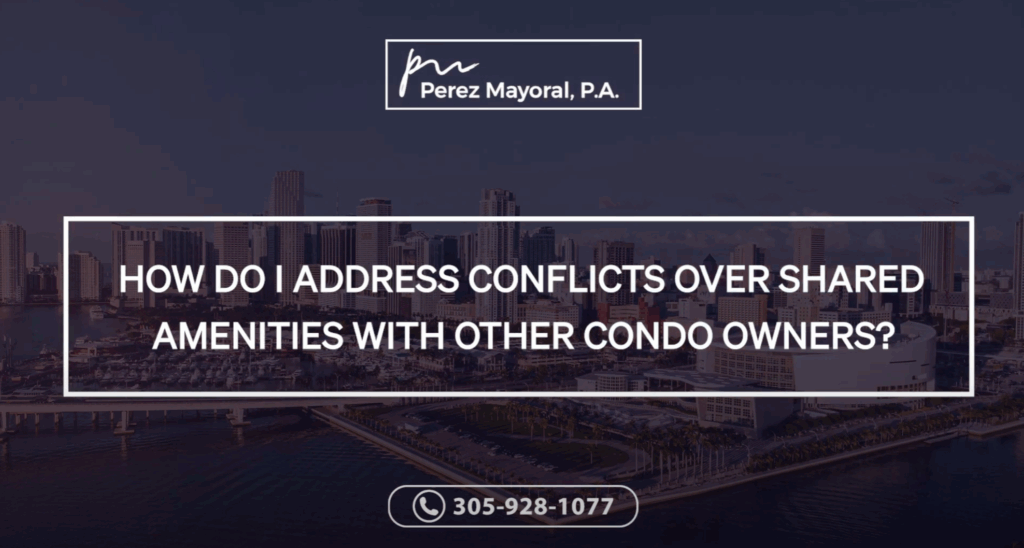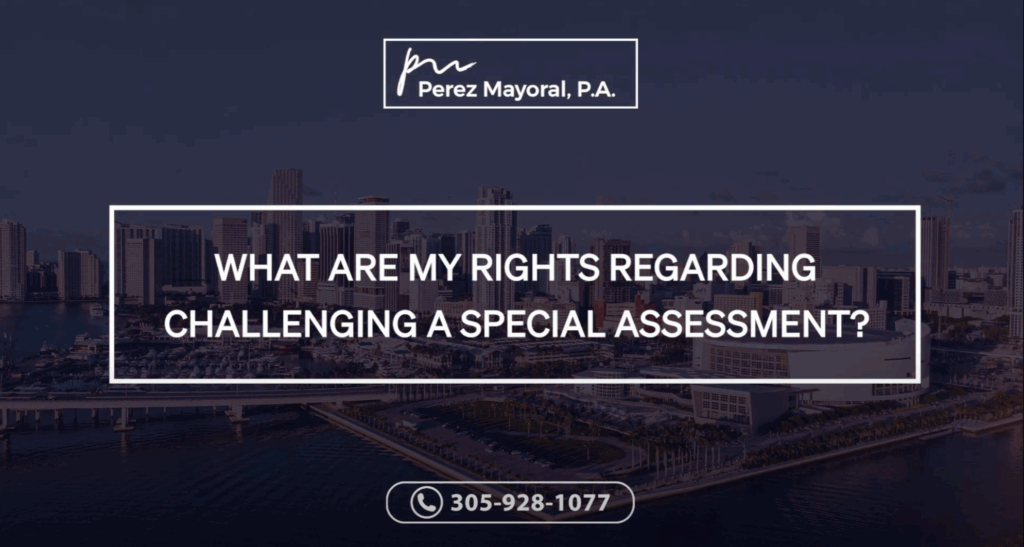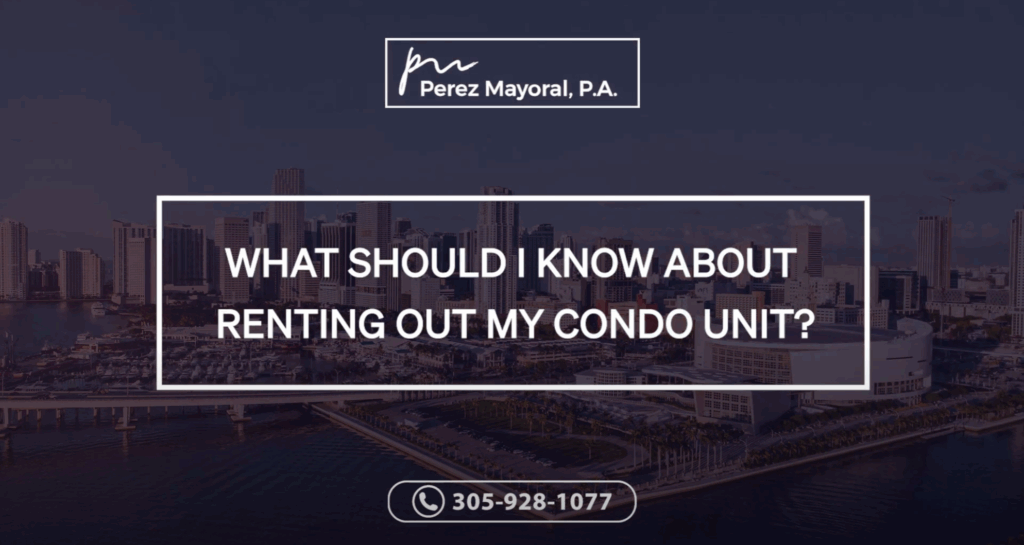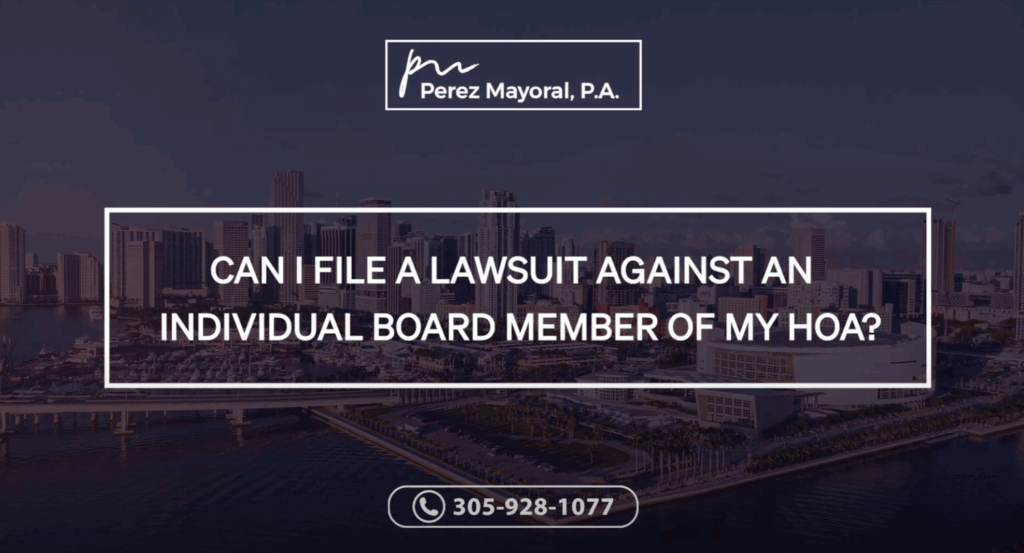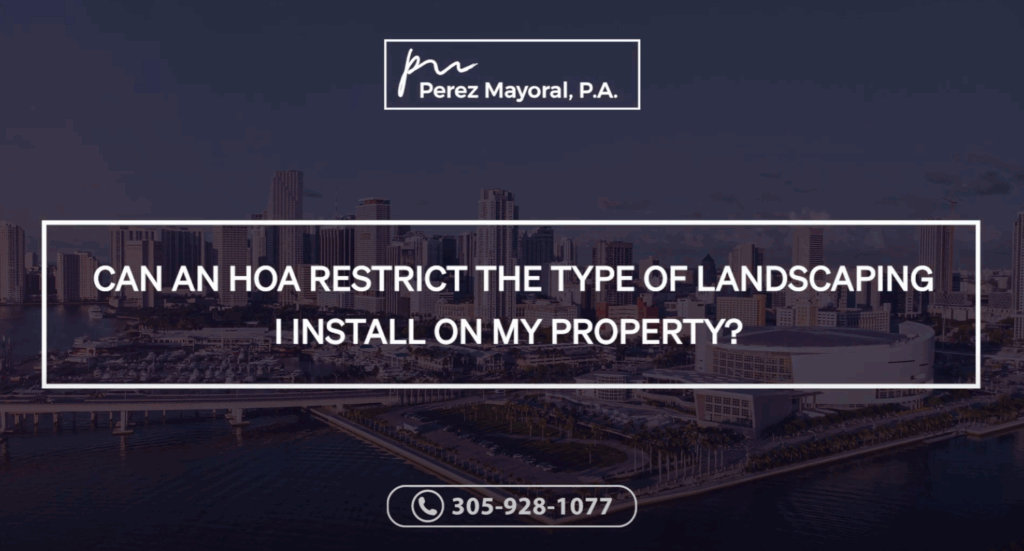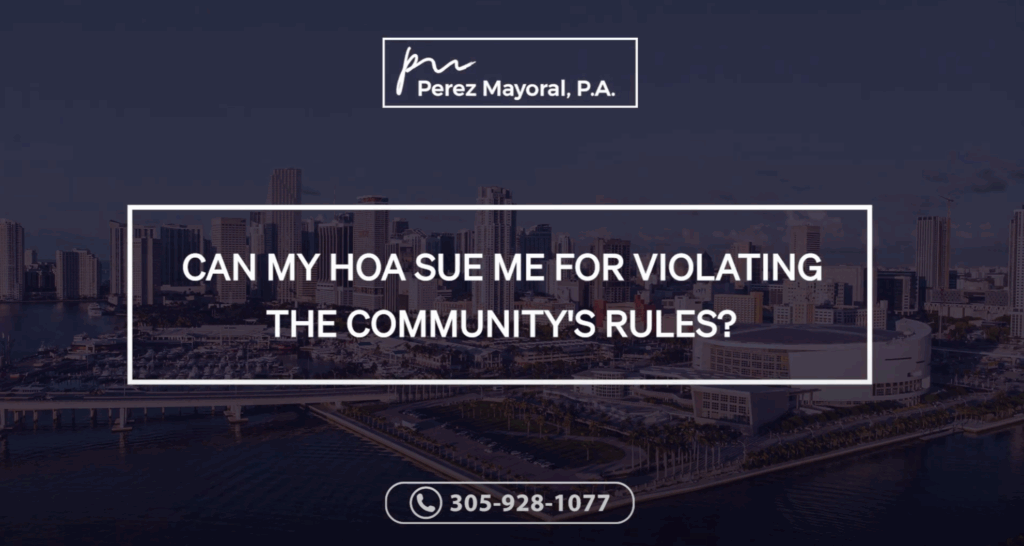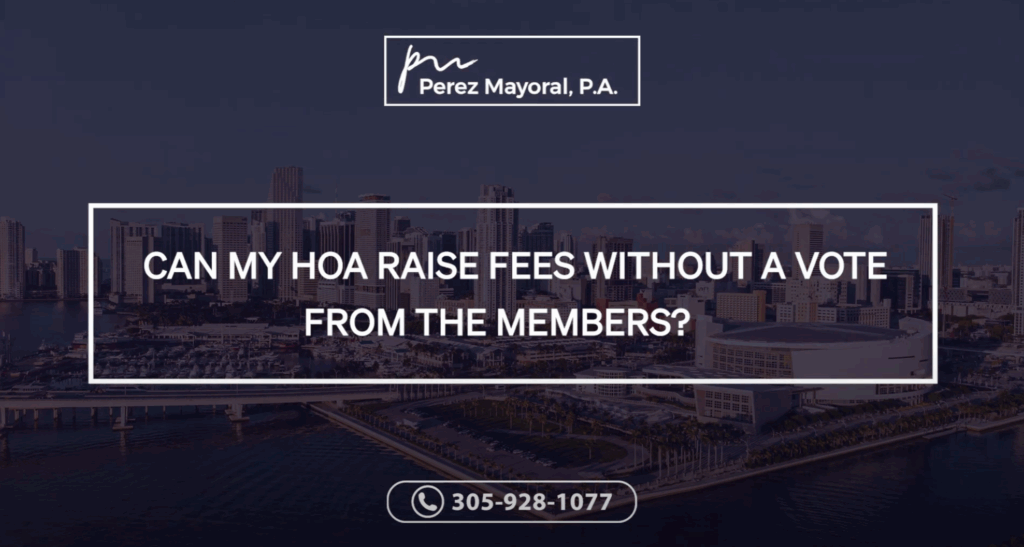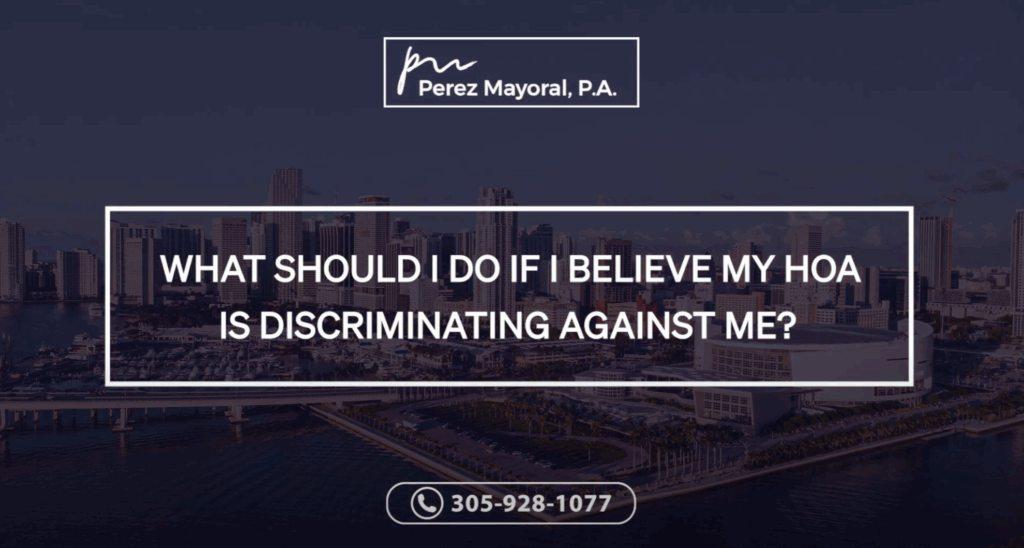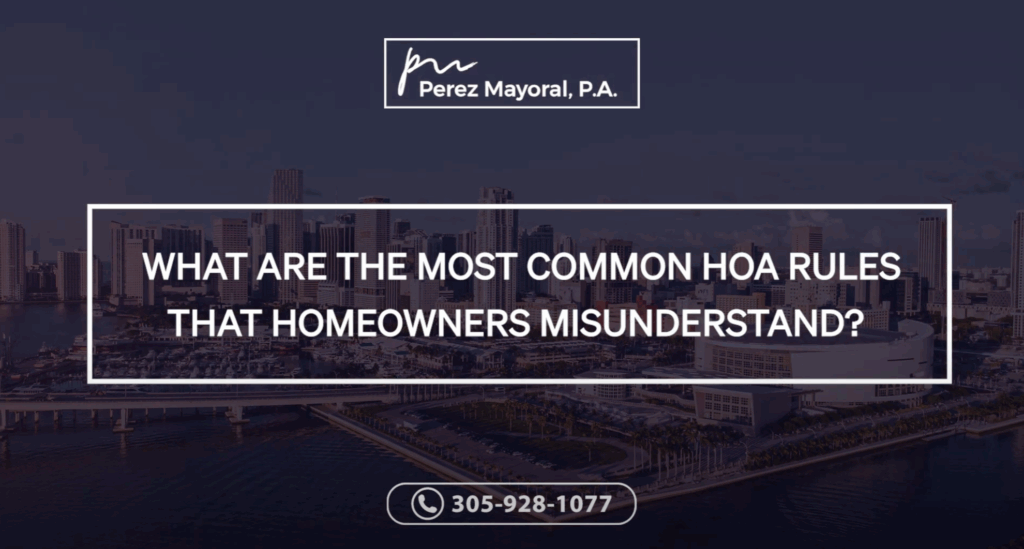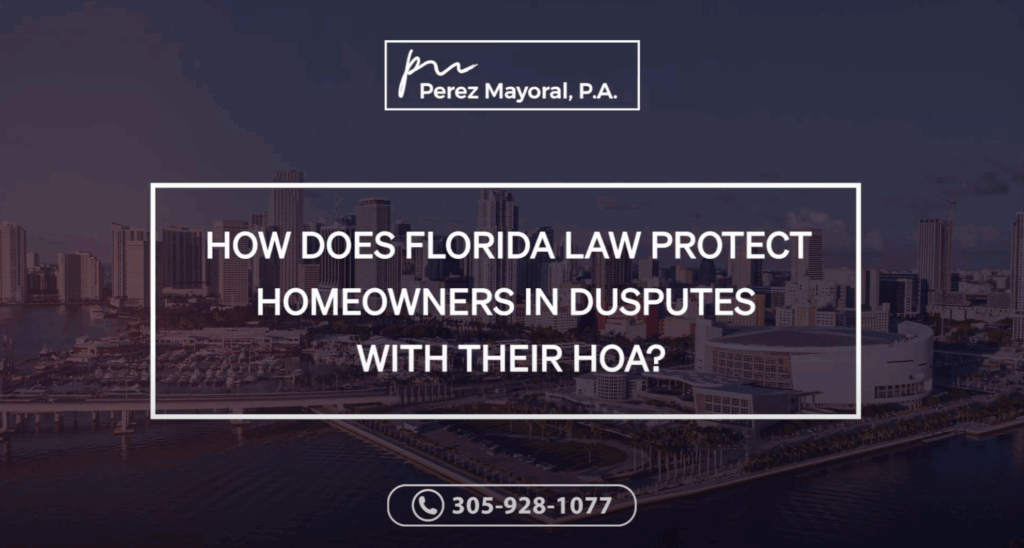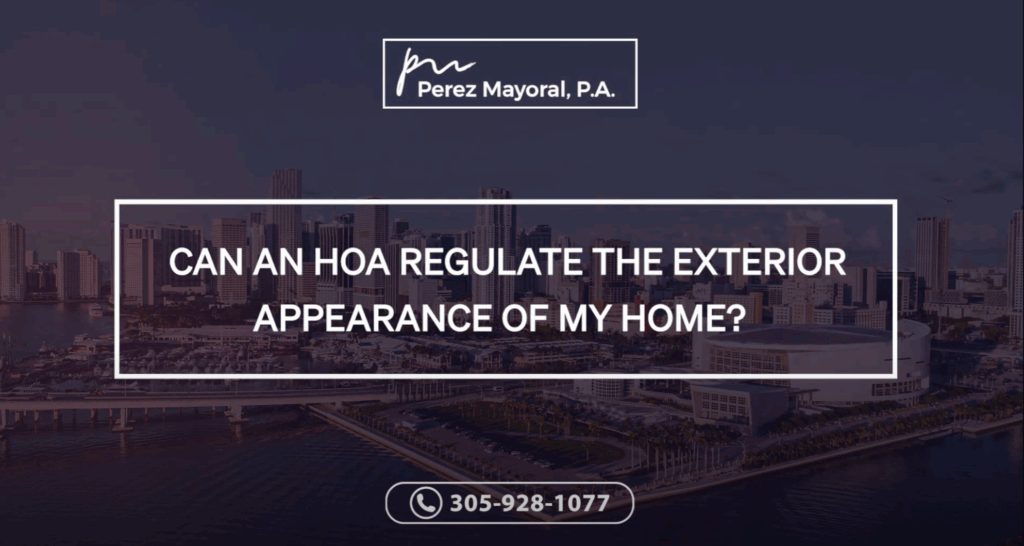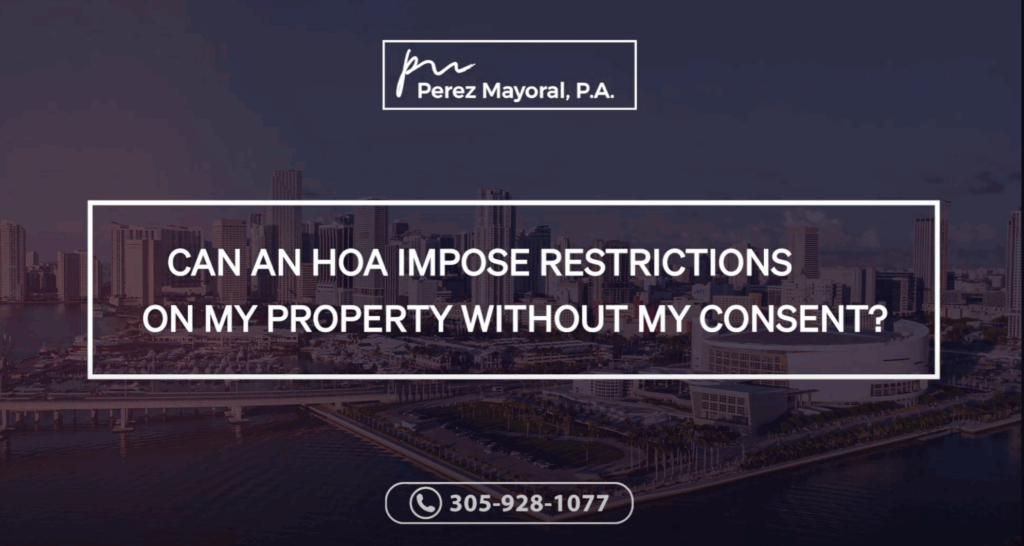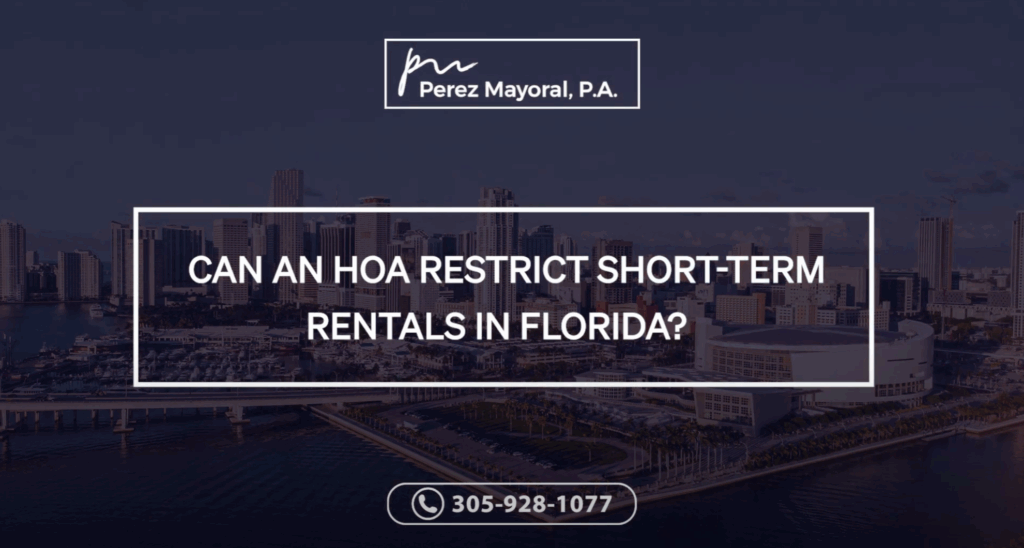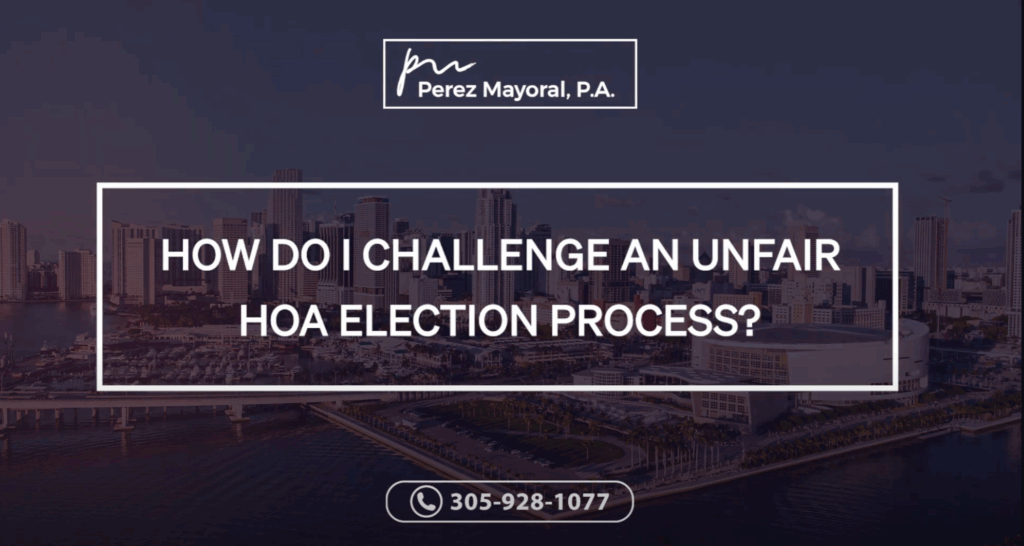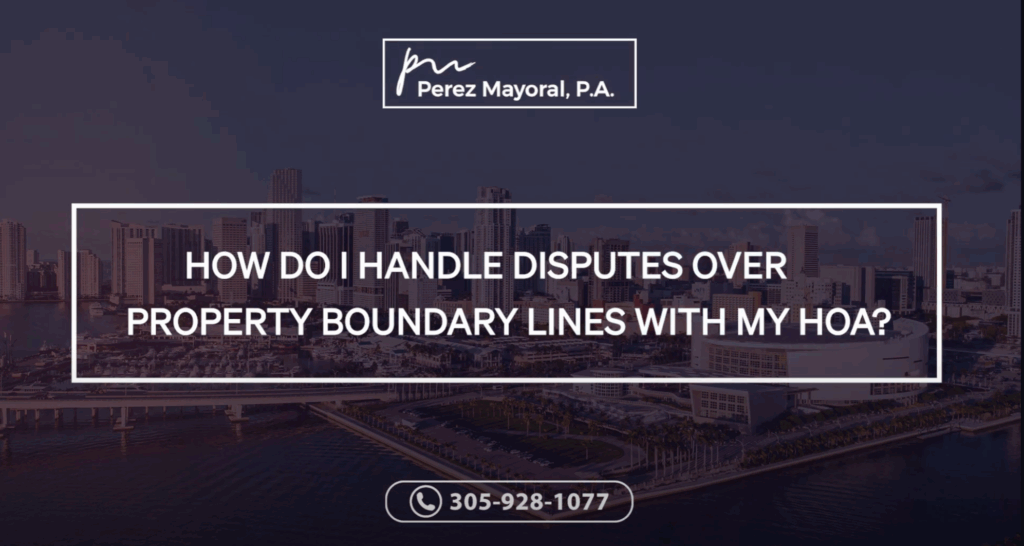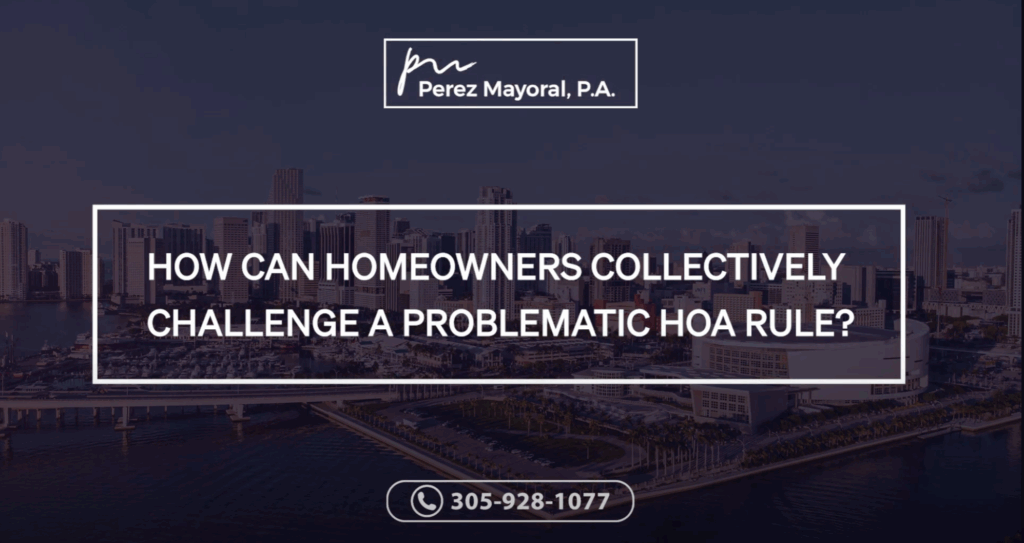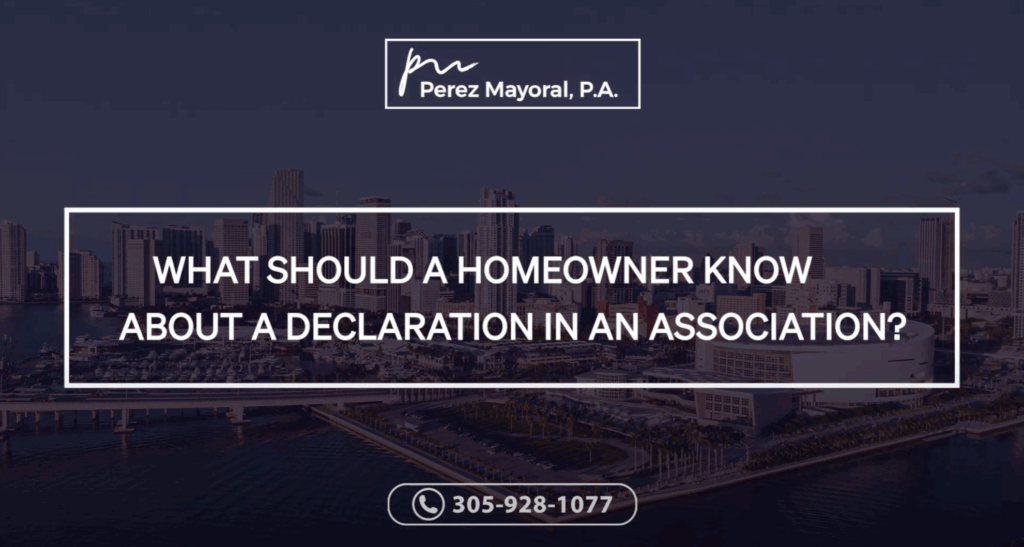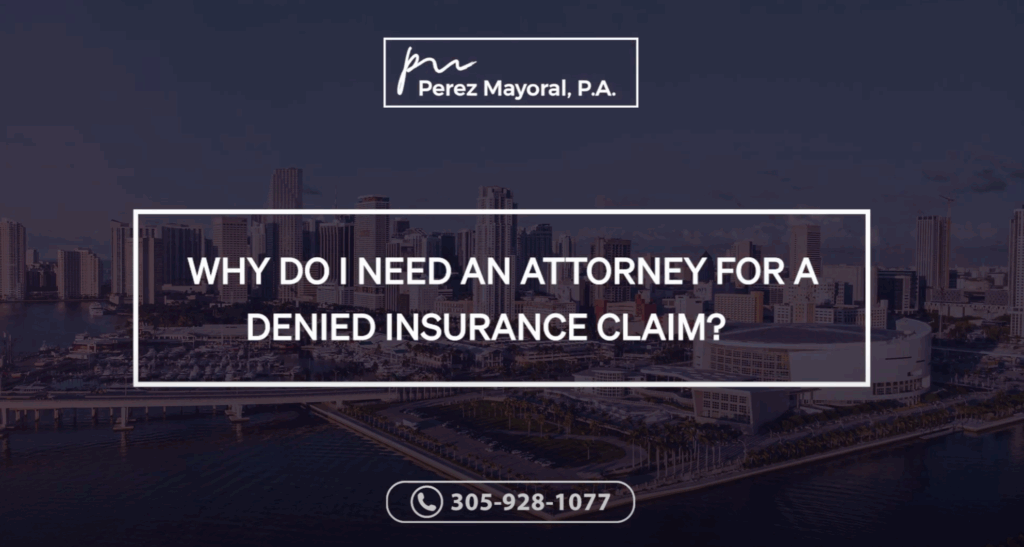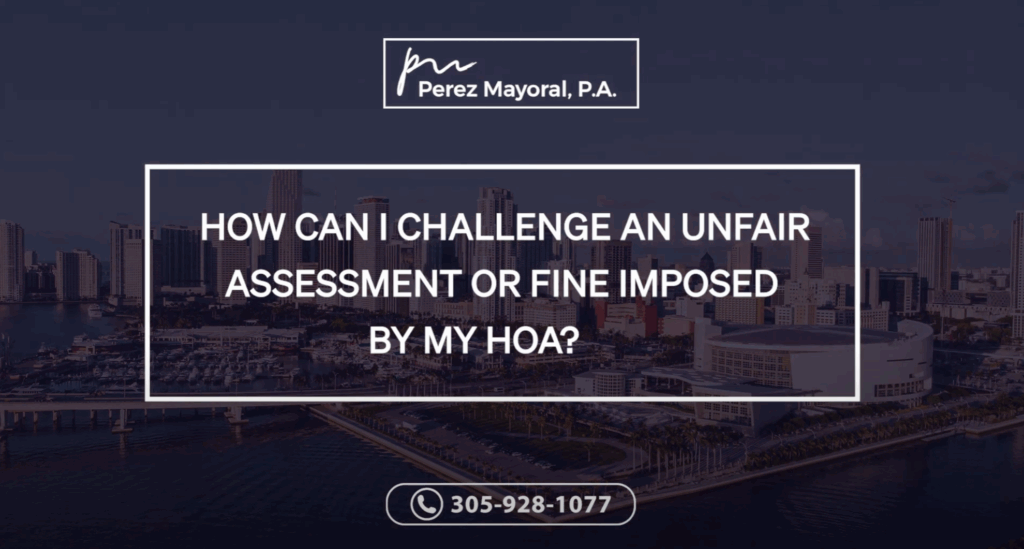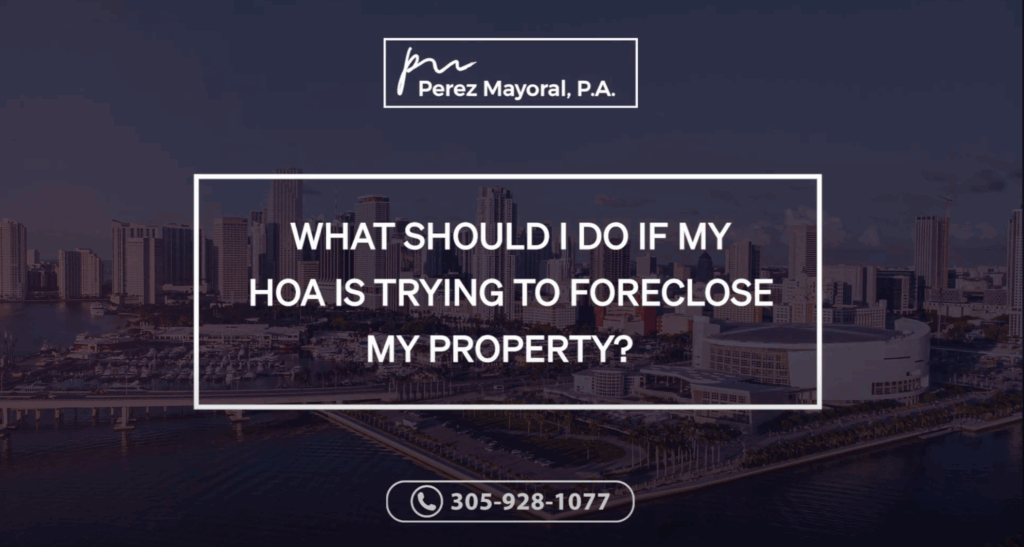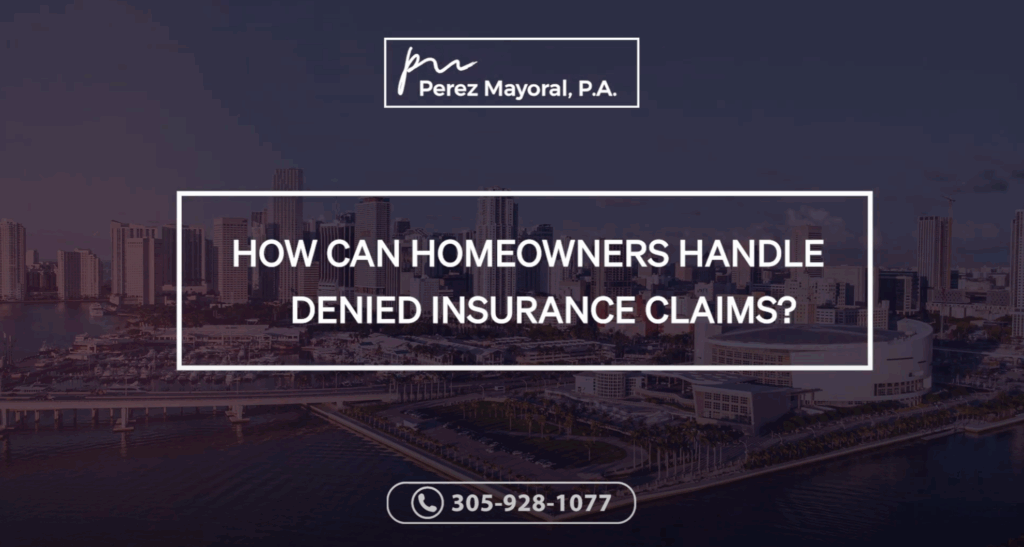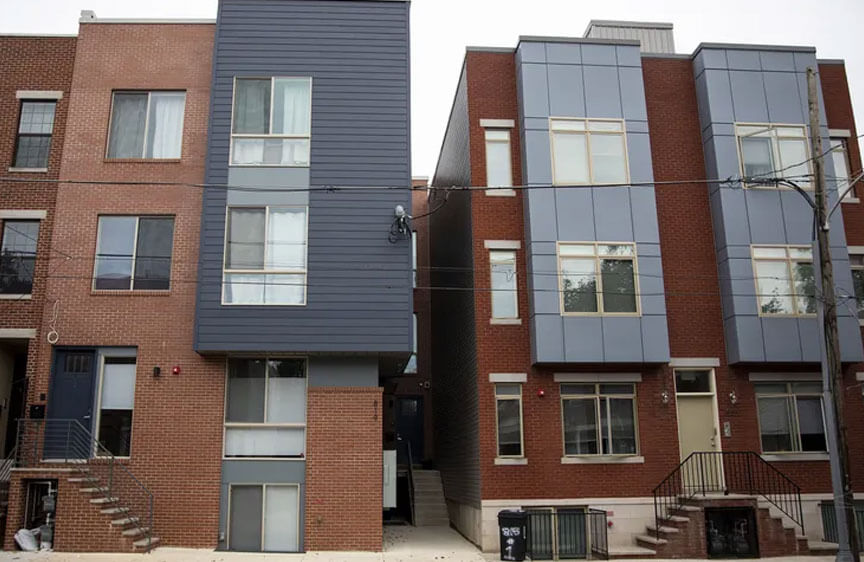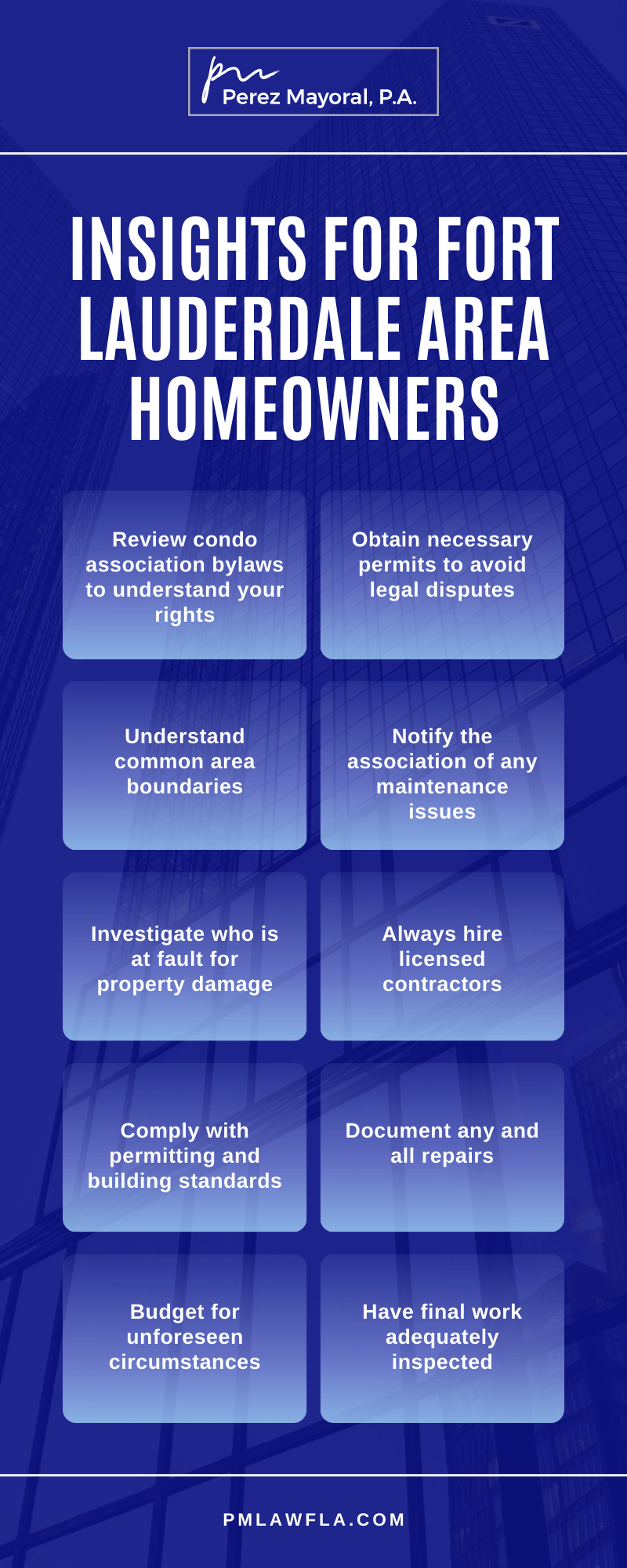-
Miami, FL
-
Broward, FL
-
Orlando, FL
-
Palm Beach, FL
-
Tampa, FL
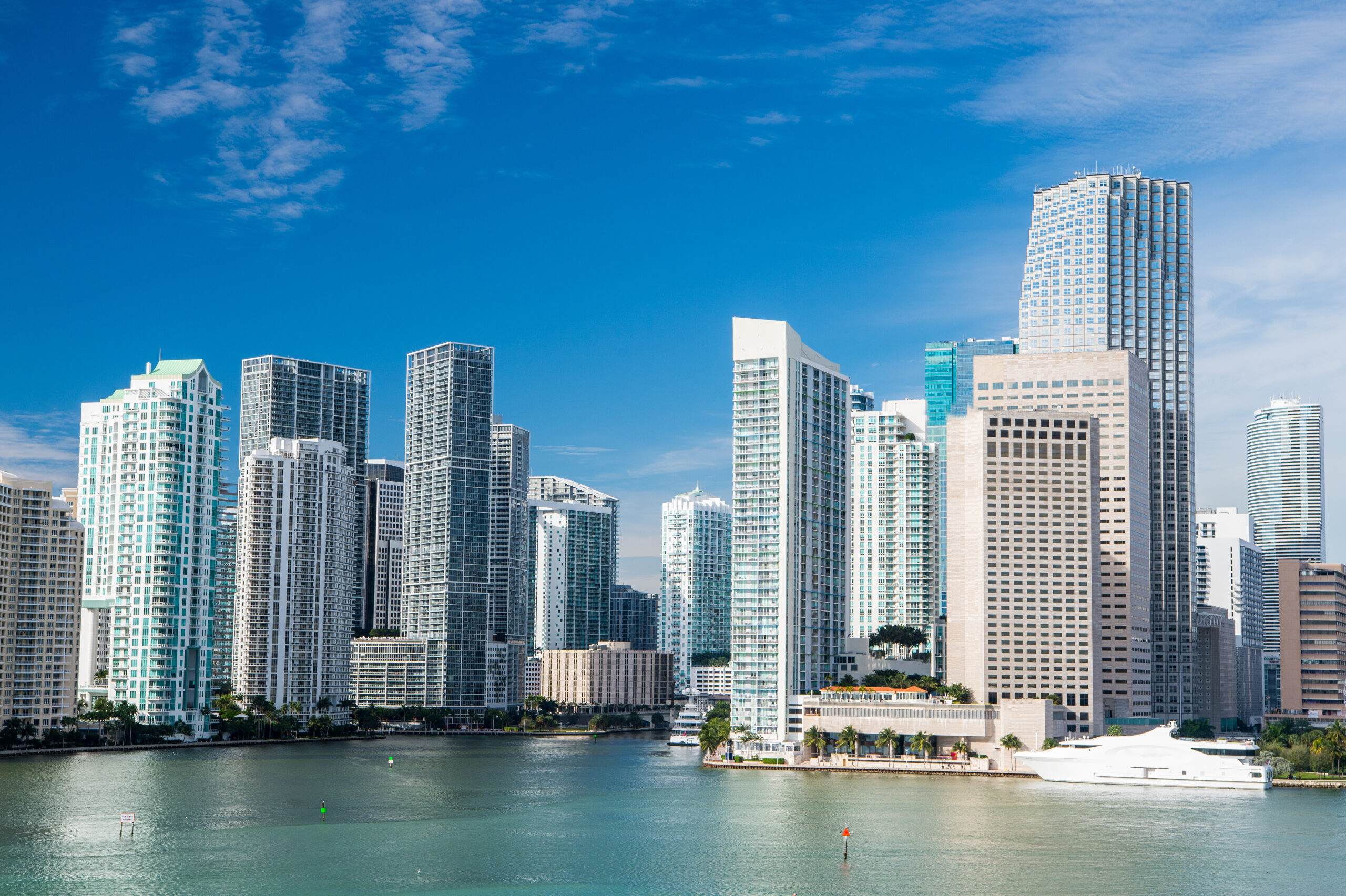
Florida Condo Attorneys for Condo Owners
At Perez Mayoral, P.A., we proudly represent homeowners only – never HOAs or condominium associations. When your HOA or condo association crosses the line, our attorneys are here to fight for you, protect your rights, and help you take back your peace of mind.
Request a Consultation With an HOA Attorney
Your property. Your rights. Our fight. | Hablamos Español

Common Homeowners Association Issues
Homeowners Associations (HOAs) are responsible for maintaining and repairing common areas and elements, such as roads, landscaping, recreational facilities, and shared building components. When an HOA neglects these duties, it can lead to unsafe conditions, community deterioration, and reduced property values. Disputes arise when the general neglect of these common areas results in a rundown environment or when the failure to maintain essential common elements directly causes damage to individual units, such as leaks from poorly maintained roofs.
If you are experiencing property damage or safety hazards due to your HOA’s failure to maintain and repair common areas or elements, our attorneys can help. We work diligently to hold HOAs accountable and ensure they fulfill their maintenance obligations to keep your community safe and well-maintained.
Homeowners Associations (HOAs) are responsible for maintaining and repairing common areas and elements, such as roads, landscaping, recreational facilities, and shared building components. When an HOA neglects these duties, it can lead to unsafe conditions, community deterioration, and reduced property values. Disputes arise when the general neglect of these common areas results in a rundown environment or when the failure to maintain essential common elements directly causes damage to individual units, such as leaks from poorly maintained roofs.
If you are experiencing property damage or safety hazards due to your HOA’s failure to maintain and repair common areas or elements, our attorneys can help. We work diligently to hold HOAs accountable and ensure they fulfill their maintenance obligations to keep your community safe and well-maintained.
Homeowners Associations (HOAs) are responsible for maintaining and repairing common areas and elements, such as roads, landscaping, recreational facilities, and shared building components. When an HOA neglects these duties, it can lead to unsafe conditions, community deterioration, and reduced property values. Disputes arise when the general neglect of these common areas results in a rundown environment or when the failure to maintain essential common elements directly causes damage to individual units, such as leaks from poorly maintained roofs.
If you are experiencing property damage or safety hazards due to your HOA’s failure to maintain and repair common areas or elements, our attorneys can help. We work diligently to hold HOAs accountable and ensure they fulfill their maintenance obligations to keep your community safe and well-maintained.
Homeowners Associations (HOAs) are responsible for maintaining and repairing common areas and elements, such as roads, landscaping, recreational facilities, and shared building components. When an HOA neglects these duties, it can lead to unsafe conditions, community deterioration, and reduced property values. Disputes arise when the general neglect of these common areas results in a rundown environment or when the failure to maintain essential common elements directly causes damage to individual units, such as leaks from poorly maintained roofs.
If you are experiencing property damage or safety hazards due to your HOA’s failure to maintain and repair common areas or elements, our attorneys can help. We work diligently to hold HOAs accountable and ensure they fulfill their maintenance obligations to keep your community safe and well-maintained.
Disputes over HOA assessments can occur when homeowners believe the charges are unjustified or excessive. These disputes often arise from a lack of transparency in how fees are calculated or spent, with homeowners questioning the necessity of certain assessments or how funds are being used, especially if the HOA fails to provide detailed financial reports or explanations.
Our firm has extensive experience in dealing with HOA assessment disputes and can assist you in challenging unfair or excessive fees. We work to protect your financial interests and ensure fair treatment under HOA regulations, helping you navigate the complex rules surrounding assessments.
Many HOAs have architectural control committees that review and approve changes or additions to properties. Disputes arise when homeowners feel these committees are acting arbitrarily or unreasonably in denying or modifying requests, or when there are disagreements over the interpretation of community standards and guidelines. Homeowners may feel that their property improvements are being unfairly restricted or that the HOA is overstepping its authority.
If you are facing a dispute over architectural changes, our attorneys can help you navigate the approval process and challenge any unreasonable denials. We advocate for your right to make improvements to your property in compliance with community standards, ensuring fair treatment for all homeowners.
HOAs are obligated to enforce rules fairly and without discrimination, but issues can arise when associations engage in selective enforcement or discriminatory practices, such as imposing rules on certain homeowners while ignoring the same violations by others. Discrimination and harassment by board members or neighbors can also lead to legal action, especially if based on race, ethnicity, religion, or other protected characteristics.
Our attorneys are well-versed in laws protecting homeowners from discrimination and harassment. If you are experiencing unfair treatment or selective enforcement from your HOA, we are here to provide the legal support you need to ensure your rights are protected.
Disputes between neighbors in HOA communities can range from noise complaints to property boundary issues, and these conflicts can escalate when HOAs fail to enforce community rules impartially or do not effectively mediate. When direct resolution efforts fail or when the HOA does not adequately address the situation, legal intervention may become necessary to restore community harmony.
Our firm has substantial experience in resolving neighbor disputes in HOA communities. We work to find fair and effective solutions that protect your rights and maintain community harmony, ensuring that all parties are treated fairly.
Inadequate maintenance of common areas by an HOA can lead to accidents and personal injuries, such as slip-and-fall incidents due to poorly maintained walkways or injuries resulting from inadequate security measures. If the HOA’s negligence in maintaining safety measures directly contributes to accidents, homeowners may be entitled to compensation for medical expenses, lost wages, and other damages.
If you’ve been injured due to the negligence of your HOA, our attorneys can help you pursue compensation for medical expenses, lost wages, pain and suffering, and other related damages. We are committed to holding HOAs accountable for maintaining safe community environments.
Video Resources
FOR FLORIDA HOMEOWNERS
If you are experiencing property damage or safety hazards due to your HOA’s failure to maintain and repair common areas or elements, our attorneys can help. We work diligently to hold HOAs accountable and ensure they fulfill their maintenance obligations to keep your community safe and well-maintained.
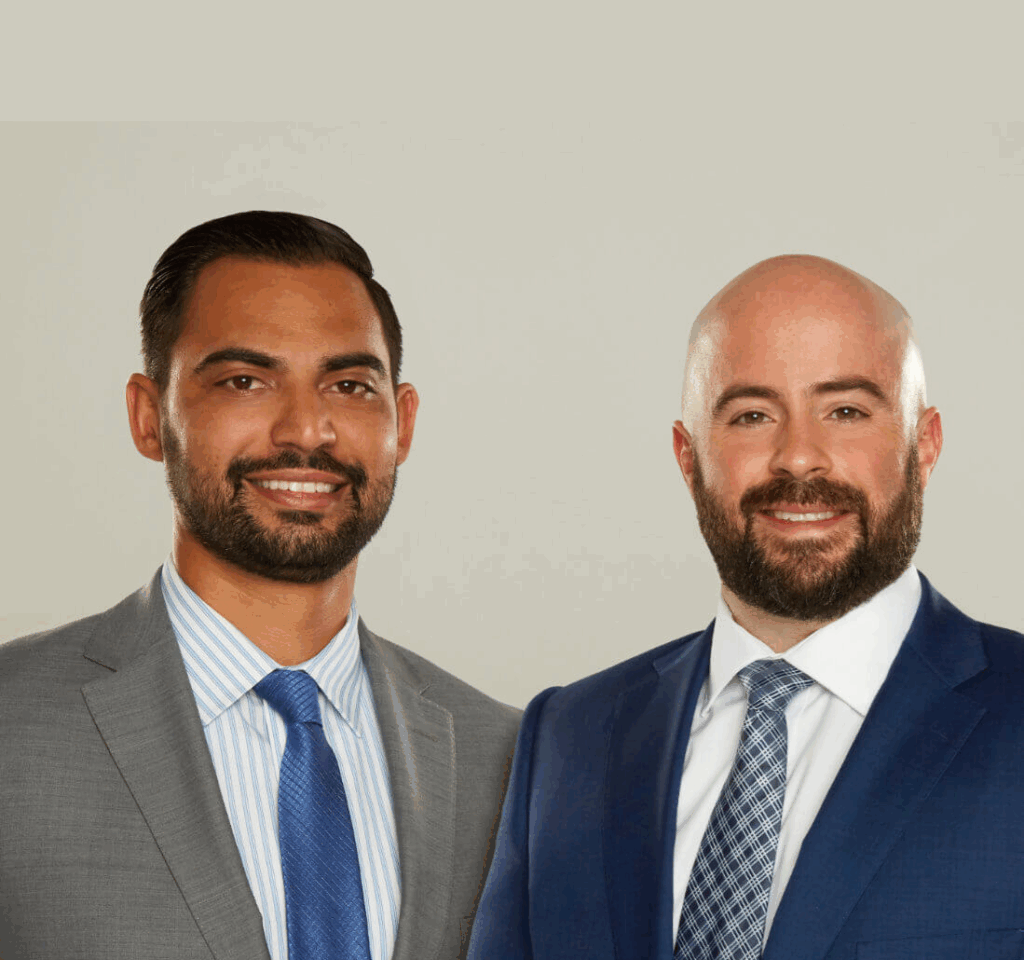
Contact us today for a case review.
HOA troubles turning your dream home into a nightmare? From maintenance failures and excessive fines to neighbor disputes, discrimination, and board governance issues, Perez Mayoral, P.A. is here to help. Our experienced attorneys will protect your homeowner rights and resolve your HOA conflicts. Don’t let these problems persist.
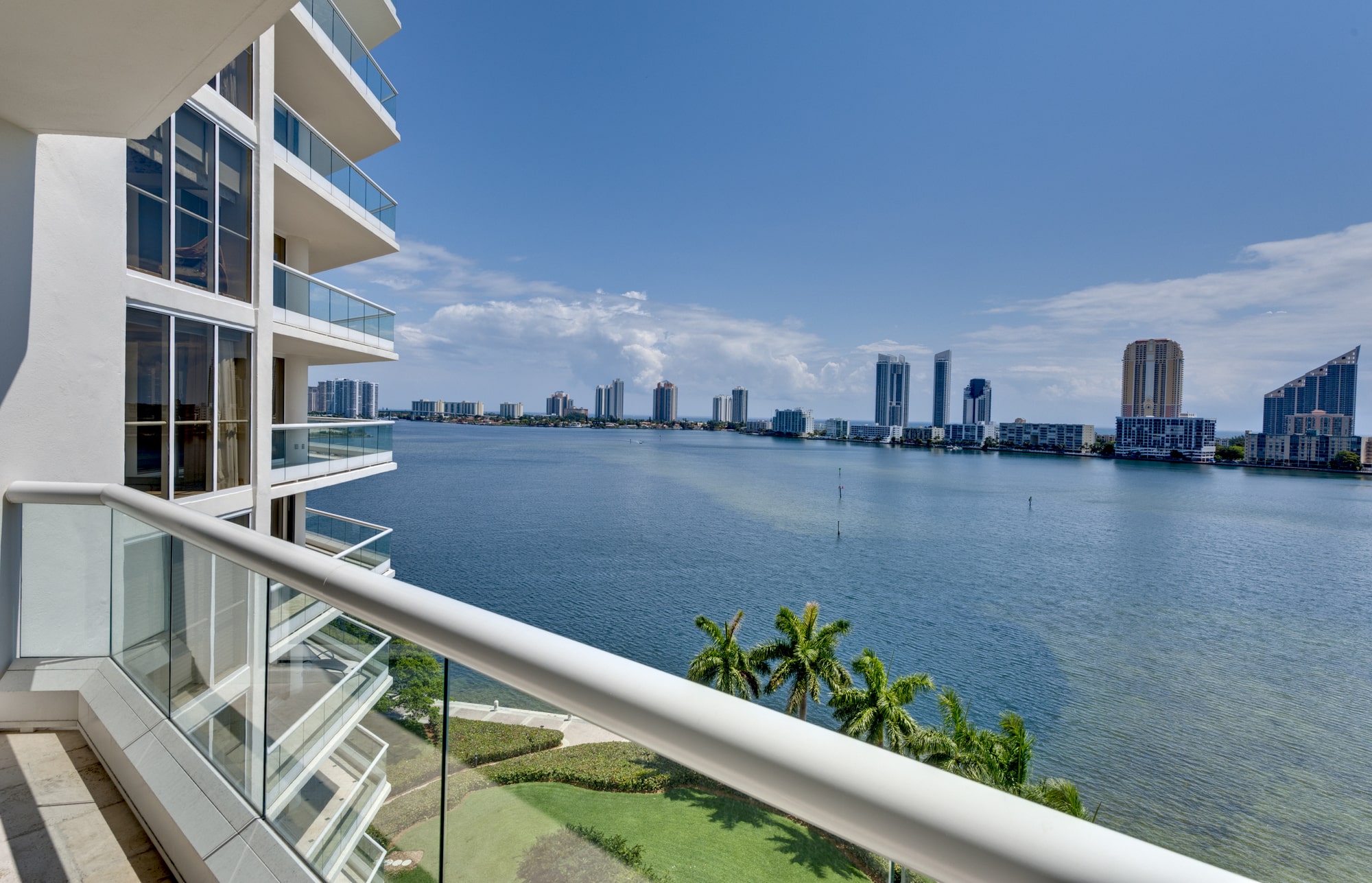
Frequently Asked Questions
Homeowners Associations (HOAs) are responsible for maintaining and repairing common areas and elements, such as roads, landscaping, recreational facilities, and shared building components. When an HOA neglects these duties, it can lead to unsafe conditions, community deterioration, and reduced property values. Disputes arise when the general neglect of these common areas results in a rundown environment or when the failure to maintain essential common elements directly causes damage to individual units, such as leaks from poorly maintained roofs.
If you are experiencing property damage or safety hazards due to your HOA’s failure to maintain and repair common areas or elements, our attorneys can help. We work diligently to hold HOAs accountable and ensure they fulfill their maintenance obligations to keep your community safe and well-maintained.
The responsibility of an HOA or Condominium Association in Florida for repairing damage to your home largely depends on the nature of the damage, the cause of the damage, and the governing documents of the community. Here’s a breakdown based on different scenarios and legal frameworks:
- General Liability Principles: While the unit owners generally bear the responsibility for repairing damages within their own units, there are scenarios where the Association may be held liable. If the Association’s negligent repair and maintenance of common elements like the roof, walls, or pipes within the building caused property damage to individual units, then the Association may be liable to repair and/or pay for the repairs to the affected units. This liability could extend to covering costs such as lost rent if the unit was being rented out, expenses for alternative housing if the unit becomes uninhabitable, and compensation for lost personal property due to the damage. It’s the Association’s duty to maintain, repair, and replace common elements or other specified items as per the governing documents and Florida law, and failure to do so diligently can result in liability towards the unit owners for the ensuing damages.
- Negligence Claims: If the damage to your home arises from the negligence of the HOA or Condominium Association, particularly due to their failure to repair, maintain, or replace common elements like roofs, walls, or pipes which then result in issues such as water intrusion or other types of damage, you may have grounds to pursue a negligence claim against the association. In such cases, the association may be held liable for the repairs and/or the cost of repairs to the affected units. This liability might also extend to covering related costs such as lost rent, alternative housing expenses, and the replacement of lost personal property caused by the damage.
- Injunctions: In cases where the association neglects its duties as stipulated in the governing documents, unit owners can potentially seek an injunction against the association, compelling them to comply with their duties and obligations under the governing documents. For instance, if there’s excessive moisture intrusion due to issues with common elements which the association is responsible to maintain, unit owners can seek legal recourse to compel the association to address the issue. Unit owners can potentially sue seeking an injunction against the Association, where a court essentially orders an association to comply with their duties and obligations under the governing documents. A case that encapsulates this is Amelio v. Marilyn Pines Unit II Condo. Ass’n, 173 So. 3d 1037 (Fla. 2d DCA 2015). In this case, the Amelios brought a suit against their Condominium Association for failing to address excessive moisture intrusion in their unit, which was linked to issues with the floor slab—a responsibility of the Association to repair and maintain as per the governing condominium documents. The case underscores that unit owners have a right to seek mandatory injunctions against their Association to compel them to fulfill their obligations as stipulated in the governing documents, particularly when the neglect results in irreparable harm and when there’s no adequate remedy at law. Through such injunctions, unit owners can legally press for corrective action through the courts, ensuring the Association adheres to its maintenance and repair obligations to prevent further damage or harm.
- Statutory framework: In Florida, the statutes provide a comprehensive legal framework outlining the responsibilities of HOA and Condominium Associations concerning the maintenance, repair, and insurance of common elements. Specifically, Section 718.111(11) mandates that the association is responsible for insuring the common elements, outlining the insurance coverage requirements including property insurance for all common elements. If a casualty event like a hurricane, fire, or flood causes damage, the association’s insurance may cover the repairs. The liability of the association and unit owners is also determined based on whether the damage was caused by an insurable event or other causes like normal wear and tear or intentional and negligent acts. On the other hand, Section 718.113 emphasizes the association’s duty to maintain the common elements. If the association neglects this duty and a failure to maintain common elements like roofs, walls, or pipes leads to damage in individual units, the association may be held liable for the repairs. This section also outlines the association’s responsibility for certain elements like hurricane shutters, impact glass, code-compliant windows or doors, etc., if stipulated as such in the declaration of condominium. Furthermore, if the negligence in maintaining common elements causes damage making the unit uninhabitable, the association might be liable for the consequences. These statutes collectively create a framework under which the associations operate, and deviations from these stipulated responsibilities can lead to legal repercussions. The specific obligations and liabilities may also be influenced by the governing documents of the individual community. Hence, understanding the interplay between the Florida Statutes and the community’s governing documents is crucial for both the associations and the unit owners to ensure compliance and address issues related to repairs and maintenance adequately.
Given the intricacies of the legal frameworks and the potential variance in governing documents across different HOA and Condominium Associations, it is highly advisable for individuals facing such issues to hire an attorney experienced in HOA and Condominium litigation to navigate this legal domain effectively.
HOA and Condominium Associations typically carry various insurance policies for different purposes to safeguard both the association and the community against a range of potential issues and liabilities. Here are the typical types of insurance they carry:
- Property and Casualty Insurance: This insurance is carried to protect the general community and association property against insurable events such as hurricanes or fires. It covers damages to common areas or shared structures (e.g., buildings, community pools, clubhouses, sidewalks) caused by events like fires, storms, or vandalism.
- Directors and Officers (D&O) Liability Insurance: This insurance, often referred to as Errors and Omissions Insurance, is meant to protect the directors and officers of the association in case they are sued for breaches of fiduciary duty or errors in the commission of their acts as board members. It’s designed to cover claims against HOA board members or officers for alleged negligence, mismanagement, or other actions that could be seen as failures in their duties.
- General Liability or Commercial General Liability Insurance: This insurance is to protect the association against negligence claims. These claims can arise from the association’s failure to maintain common elements, leading to property damage to unit owners or claims for personal injuries to unit owners and members of the public occurring on association property.
It’s crucial to note that the coverage details may vary depending on the specific HOA and COA insurance policy as well as the governing documents of the individual community. Therefore, it’s always advisable to review your association’s documents and insurance policy to confirm the coverage details and understand the extent of protection provided against different types of claims and liabilities.
We have significant experience dealing with HOA claims, so we are well-prepared to help homeowners with problems involving their HOAs and condominium associations. Some important things to know about our experience are:
- Diverse experience: Our lawyers successfully litigated on behalf of homeowners with many different claims, such as property damage, breaches of fiduciary duty, defamation, and shareholder derivative actions.
- Unique viewpoint: Since our legal team used to represent associations and insurance companies, they have the essential knowledge about how HOAs, condominium associations, and their insurers work. This helps them understand how associations operate, which can be helpful when fighting for homeowners.
- Focusing on homeowners: Our attorneys now only represent homeowners, demonstrating our dedication to protecting homeowners’ rights and interests in disagreements with their associations. We have significant experience dealing with HOA claims, so we are well-prepared to help homeowners with problems involving their HOAs and condominium associations.
The type of claim determines the appropriate fee structure for our legal services. Most of our practice focuses on representing homeowners and condominium owners who have experienced property damage due to their association’s failure to maintain and repair “common elements” like roofs, windows, water lines and pipes, balconies, and other association property. Generally, we handle these cases on a “contingency” basis, meaning we only get paid if we recover compensation for our clients.
For matters involving rule enforcement, selective enforcement, disputes with association board members, violations of the association’s covenants, discrimination, harassment, conflicts between neighbors, or other related issues, we typically work on a refundable retainer basis. This means that our clients pay for the work we do on the case hourly rather than a flat fee. The retainer for each matter is determined based on the projected amount of work requested by the client.
Attorneys specializing in HOA and COA disputes handle conflicts between homeowners and their associations, whether they are homeowners’ associations or condominium associations. These disputes can range from minor issues, such as payment of dues, to more complex matters, such as interpreting rules and regulations or enforcing covenants. These attorneys can help to resolve a wide range of issues, including but not limited to violation of association bylaws and regulations, breach of contract, disputes over property boundaries or ownership rights, failure to pay dues or assessments on time, and harassment from other members. Our practice focuses on representing homeowners experiencing property damage due to the association’s failure to maintain and repair common elements.
Disputes between associations and homeowners can arise due to various issues, such as failure to comply with rules and regulations or disagreements over assessments. In such cases, an attorney specializing in HOA and COA disputes can significantly assist in providing legal advice and resolving disputes. These attorneys can help by reviewing the association’s governing documents, researching applicable laws, negotiating settlements, and, if necessary, representing the homeowner in court. With their expertise in association law and dispute resolution strategies, attorneys specializing in HOA and COA disputes are invaluable for resolving conflicts between homeowners and their associations, particularly when it comes to addressing property damage caused by the association’s failure to maintain and repair common elements like roofs, water lines and pipes, windows, balconies, and other association property. By working closely with homeowners and utilizing their extensive knowledge of the legal system, these attorneys can help secure fair compensation for damages and ensure that associations are held accountable for their responsibilities to maintain and repair common elements within the community.
Florida experiences a shortage of law firms that represent homeowners against their associations. While numerous “HOA Attorneys” can be found online, most exclusively represent HOAs. Only a handful of law firms that represent homeowners in disputes with their associations possess the necessary knowledge, skill, and litigation experience to effectively enforce their clients’ rights and achieve results. We are one of the few firms with skilled civil litigators and trial attorneys prepared to handle various potential claims. At Perez Mayoral, we help homeowners enforce their rights against their associations by providing top-notch legal representation for all the aforementioned matters. Our dedication to representing homeowners against their associations sets us apart from Florida’s other law firms.
